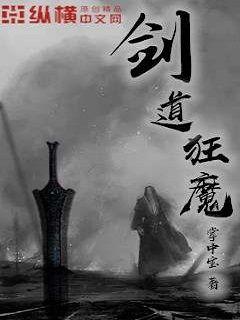
文章摘要:本文将探讨预测国际足球赛事冠军,挑战谁将夺冠的话题。从多个方面详细讨论,包括历史战绩、球队实力、教练团队以及赛制等,旨在分析影响冠军的各种因素,为读者提供更加全面的预测视角。
1、历史战绩分析
历史战绩是评判一支球队实力的重要指标之一,过往的表现往往能反映球队的实力水平。在过去的国际赛事中,一些传统豪强频频夺冠,如巴西、德国等,他们的历史成绩为何让他们成为热门?
此外,有一些新兴劲旅也值得关注,比如最近表现出色的法国队和比利时队,他们的崛起是否能挑战传统强队的霸主地位?
再者,有一些黑马球队可能会出现,在历史战绩中处于低迷状态的球队有望在本届赛事中崭露头角吗?
2、球队实力对比
除了历史战绩外,各支球队的实力对比也至关重要。从球员阵容、技战术水平、团队配合等方面综合评价,哪支队伍在实力上相对更具优势?
实力对比还需关注战术风格,有些球队擅长进攻,有些球队注重防守,不同的战术风格会在比赛中展现出不同的竞争优势。
同时,对实力的评估也要考虑球队的整体状态和球员的伤病情况,这些因素都可能对决赛结果产生重要影响。
3、教练团队评估
教练团队在国际赛事中的作用不可忽视,优秀的教练往往能带领球队克服困难,提升士气,制定更有效的战术策略。各支球队的教练阵容如何?
教练的执教经验、战术理念和应变能力都是评价教练团队的重要标准,这些因素对球队的发挥和决赛走势都有不可忽视的影响。
有些球队的教练拥有丰富的大赛经验,而有些则是新晋教练,两者之间的对决会呈现怎样的局面?
4、赛制和变数影响
除了球队自身实力和历史战绩,赛制和变数也是决定冠军归属的重要因素。不同赛制可能会对球队发挥带来不同的影响,掌握赛制变数成为预测冠军的关键。
同时,球队在赛事中遇到的意外情况、伤病、裁判判罚等因素也会对比赛结果产生直接影响,这种不确定性增加了预测冠军的难度。
如何在赛制和各种变数中找到平衡,成为预测冠军过程中需要认真考虑的问题。
总结:
综合历史战绩、球队实力、教练团队以及赛制和变数的因素,进行全面分析和评估,有助于更好地预测国际足球赛事冠军。每个方面都有影响决赛结果的重要性,而最终冠军���属,更是一个全方位、多元素综合的结果。
文章摘要的内容:本文从四个方面对顶尖球员:谁将登顶?进行深入阐述。首先,探讨了目前排名前列的球员,分析其实力和潜力;其次,剖析了身后追赶者的实力与竞争;然后,从心理素质和团队支持两个角度分析了登顶的关键因素;最后,对于登顶之路进行了展望,并提出了一些可能的发展趋势。
1、现状分析
目前,网球界的顶尖球员包括纳达尔、费德勒、德约科维奇等,他们拥有雄厚的实力和丰富的比赛经验。
这些球员在各项大赛中屡屡崭露头角,展现出超凡的技术和出色的心理素质。
他们的统治地位在一段时间内难以撼动,但也面临着新一代球员的挑战。
2、新生力量
年轻一代的球员如蒂姆、齐雷内尔等正在崛起,他们的实力不可小觑。
这些球员拥有出色的体能和技术,正在逐渐成长为未来的顶尖选手。
他们的到来给现有的统治者们带来了压力,也为网球界的竞争增添了更多看点。
3、关键因素
登顶并非只是技术的比拼,心理素质和团队支持同样至关重要。
在关键时刻保持冷静、坚韧的心态是决定胜负的关键。
同时,一个稳定、专业的团队能够为球员提供全方位的支持和帮助,提高其竞争力。
4、未来展望
随着时间的推移,新一代球员将逐渐取代现有的统治者们,开启网球界的新篇章。
而在这个过程中,技术的革新、训练方式的改进等都将成为影响球员命运的重要因素。
未来的网球界充满了不确定性,但也充满了机遇。
总结:
在网球界,登顶需要综合考量实力、心理素质和团队支持等多个因素。
随着新一代球员的崛起,以及技术的不断进步,网球界的格局也将发生巨大变化。
Certainly! Here's the structured article about S. Devrij, a Dutch defender, focusing on his football career and technical style.
**Article Abstract:**
Stefan de Vrij, renowned for his defensive prowess and tactical acumen, exemplifies the modern Dutch defender. From his formative years to international acclaim, his journey unfolds through a blend of strategic insight, defensive resilience, and leadership on the field. This article delves into his career trajectory, technical attributes, tactical impact, and the broader influence of his playing style within contemporary football.
---
1、Early Career and Development
Stefan de Vrij's early years in football laid the foundation for his future success. Born in Ouderkerk aan den IJssel, Netherlands, on February 5, 1992, he displayed promise from a young age. He joined the youth academy of Feyenoord Rotterdam, where his defensive abilities quickly stood out. De Vrij's positional awareness and composure under pressure were evident even in his formative years, attributes that would define his career.
His progression through Feyenoord's ranks was marked by consistent improvement in both technical skills and tactical understanding. By the time he made his first-team debut in 2009, he had already established himself as a reliable central defender. De Vrij's ability to read the game and initiate attacks from the backline showcased his versatility beyond defensive duties.
As he continued to mature, De Vrij became a pivotal figure in Feyenoord's resurgence in Dutch football. His leadership qualities began to shine through, earning him the captain's armband at a young age. This period not only solidified his status as one of the top defenders in Eredivisie but also caught the attention of European clubs scouting for defensive talent.
2、Technical Skills and Defensive Prowess
De Vrij's technical prowess as a defender sets him apart in contemporary football. His exceptional ability to time tackles and interceptions with precision reflects his astute reading of the game. Known for his aerial dominance and strong positional play, he combines physicality with tactical intelligence seamlessly.
His passing accuracy and distribution from the backline are crucial in building play from defense to attack. De Vrij's proficiency in initiating attacks through long balls and short, incisive passes adds a dynamic dimension to his defensive role. This technical finesse not only stabilizes his team defensively but also contributes significantly to offensive transitions.
Moreover, his adaptability across different defensive systems highlights his versatility. Whether operating in a back four or three, De Vrij's understanding of defensive lines and covering spaces remains consistent, a testament to his tactical flexibility and football IQ.
3、Tactical Impact and Leadership
De Vrij's tactical impact extends beyond his individual contributions. His ability to organize and communicate effectively on the field enhances defensive cohesion. His leadership qualities, honed over years of experience, guide younger teammates and influence team strategies during matches.
Within the Netherlands national team setup, De Vrij's presence has been instrumental. His performances in major tournaments such as the UEFA European Championship and FIFA World Cup underline his ability to thrive under pressure. His partnership with other defenders and coordination with the goalkeeper exemplify his role as a defensive linchpin.
Off the ball, De Vrij's anticipation and reading of opposition movements allow him to neutralize threats effectively. His awareness of defensive transitions and quick decision-making contribute to his team's overall defensive solidity.
4、Legacy and Influence in Modern Football
Stefan de Vrij's career trajectory and technical acumen have left a lasting impact on modern football. His journey from Feyenoord to prominent European clubs like Lazio and Inter Milan signifies his international stature as a defender. Beyond his club achievements, De Vrij's role in the resurgence of Dutch football on the global stage underscores his influence.
His style of play, characterized by intelligence, composure, and defensive reliability, serves as a benchmark for aspiring defenders worldwide. De Vrij's ability to evolve with the tactical demands of the game reflects his dedication to continuous improvement and professional excellence.
In conclusion, Stefan de Vrij's career illuminates the essence of a modern-day defensive stalwart. His technical mastery, tactical astuteness, and leadership qualities have not only earned him accolades but also inspired a new generation of defenders to emulate his success.
Stefan de Vrij stands as a testament to the enduring value of defensive excellence in football, shaping the narrative of defensive play in contemporary football.
总结:
Stefan de Vrij's career highlights his exceptional technical skills, tactical acumen, and leadership on and off the field. His influence extends beyond his clubs to the broader football community, setting a high standard for defenders worldwide.